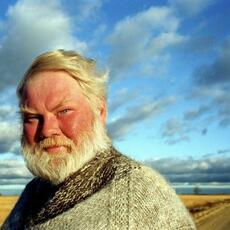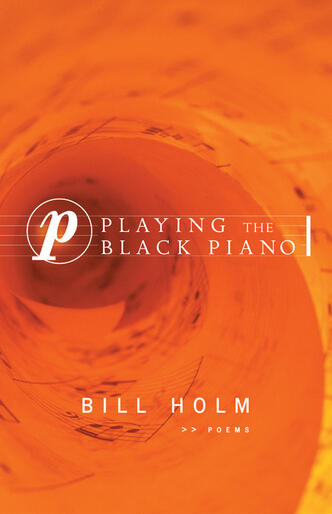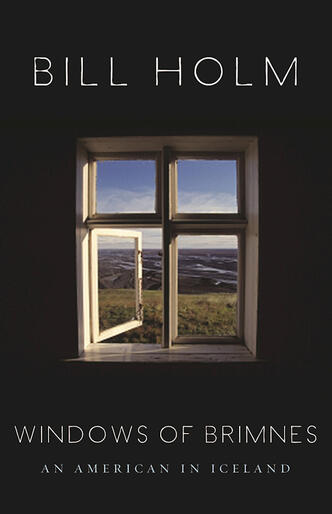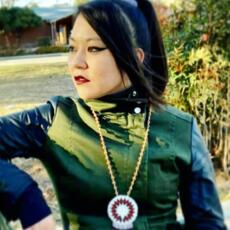On Art Song and Metamorphosis: Milkweed Hosts Album Launch for Bill Holm’s Playing Haydn for the Angel of Death
On May 6th, Milkweed Editions hosted a concert and album release party for late poet Bill Holm’s Playing Haydn for the Angel of Death. The album—a musical rendition of the late author’s namesake poem—was composed by Martha Helen Schmidt, sung by operatic baritone Ryan Hugh Ross, and accompanied by pianist Dr. Daniel Rieppel. They were joined by Milkweed Editions founder Emilie Buchwald, and visiting poets Freya Manfred and Barton Sutter. Together, they conjured Open Book into a concert hall to demonstrate the mastery of poetics, the transformative power of art song, and how Bill Holm challenged death itself—until music transcended it.
To understand Bill Holm’s legacy as the lovingly named ‘Bard of the Prairie,’ one need only glance into the main meeting room at the forefront of Milkweed’s offices. There, like a watchful shepherd, you’ll find his silhouette gazing down at the conference table stretching before him. From his perma-view, a quilted cover of Braiding Sweetgrass cloaks the wall to his right. To his left, the conference door—made of repurposed barn wood—opens each morning to a host of publishers, editors, and fundraisers, tethered by their love of literature. He is there each morning as we sip coffee from thermoses, the crowns of our heads tipped to our laptops in concentration. He is there as we pass pastries around, immersed in manuscripts and proposals. Even as the political complex threatens—at the national level—to collapse the literature landscape, he sits knowingly alongside us, his stern gaze mirroring ours. As a lifelong polemicist, he was no stranger to gazing down the long view, savoring impassioned arguments on the political, poetic, or publishing perspective. “Let’s do something else,” his writing asks of us, reaching across the expanse of time. “Let’s prove that we can have civilization, even here.”
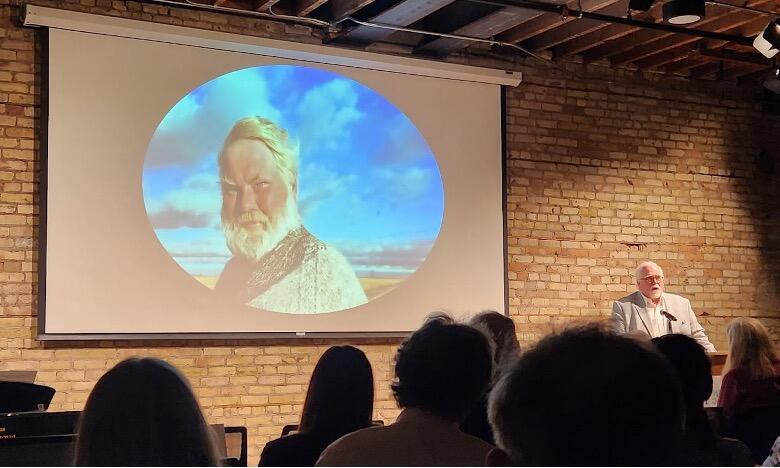
Tonight, ‘here’ is the first floor of Open Book, where the trilling piano keys beckon concertgoers up their iconic spiral staircase, engraved with handwritten cursive. Inside the performance hall, a portrait of Bill glows above the stage—the very image that graces our front office. In the corner, the black wooden wedge of a piano has transformed Open Book into a concert. Around us, the late poet’s 2008 McKnight Foundation Artist booklet serves as tonight’s playbill. Near the stage, a deep, baritone voice booms through the crowd, revealing the arrival of operatic singer Dr. Ryan Hugh Ross, accompanied by pianist Dr. Daniel Rieppel. Martha Helen Schmidt—composer and master of the art song genre—joins us virtually from the South of France, tipping her pink flute of champagne toward the camera. Even the founder of Milkweed Editions, Emilie Buchwald, delights in sharing her own story about publishing Holm’s first poetry collection, Boxelder Bug Variations. In a rare glimpse of our original matriarch’s creative process, she unfolds a freshly penned poem addressed to the Icelander himself. “You don’t get by with being dead, Bill Holm,” she teases.
“You don’t get by with being dead, Bill Holm.” — Emilie Buchwald
With that, Emilie Buchwald beckons along two visiting poets, Frey Manfred and Barton Sutter. Like those who have been so transformed by their relationships with Bill—they cannot help but reminisce. “When I think of Bill, I often think of bloody piano keys and brandy,” Freya recalls. “As you can imagine, one night we invited him over for dinner, and he came bearing brandy. Of course, when he saw our piano in the living room, he had to play it. Between the brandy and the piano, his calloused hands must’ve skated over the keys, leaving a blood spattered piano behind.” The crowd, knowing Bill, nods in agreement; that was the just the kind of man he was, to be so enraptured by poetry and music that not even pain could keep him from it. “That is how I’ll always picture him,” she says, beaming, “as a tall man scrawling away in a low room.”
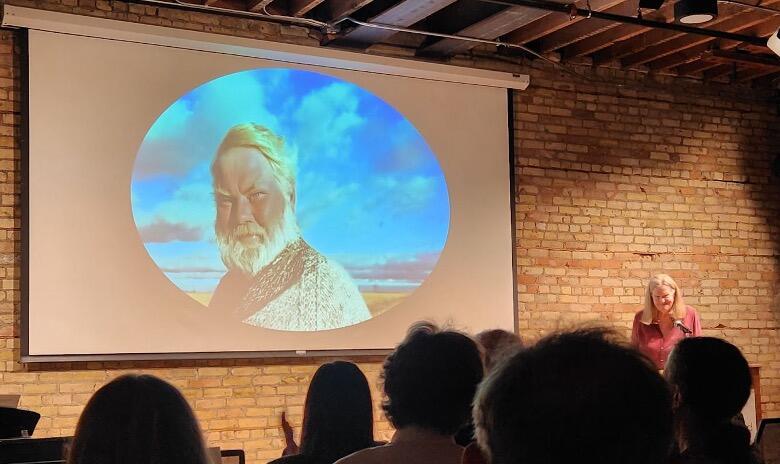
“That is how I’ll always picture him, as a tall man scrawling away in a low room.” — Freya Manfred
Accompanying these readings from our visiting poets and musicians, we are lit aglow by the northern lights of Reykjavík in the Emmy-winning PBS documentary of the same name. Here, we find ourselves peeking from the windows of his Brimnes house, salted by the Icelandic sea. Braided between scenes of the Icelandic and Minnesotan landscape, the musical trio delves into their own processes that informed the album. “Art song is the marriage of poetry and music,” Martha explains, her hands fluttering over the ivory keys. The act of finding art song, for her, is intuitively ambidextrous. As one hand plucks away at the piano, searching for notes, her other hand works away at a blank music sheet, mapping the melody as she conjures it. Yet, true to poetry’s form, she stages the song in fifteen astonishing movements, each representing a single stanza. Just as poetry can transform into music, she demonstrates, music can also be shaped by poetry.
“Art song is the marriage of poetry and music” — Martha Helen Schmidt
On the heels of the documentary, the crowd has been teased with the promise of timbered poetry long enough. At once, Dr. Daniel Rieppel taps the foot-pedal, the floorboards creaking beneath him with the weight of sonic resonance. The notes, haunting and isolated, tremble into macabre tension. Ryan’s opening phrase, “Play Haydn,” casts a darkly descending trill over us as the late poet begins to bargain with death. At this sudden drop, a wave of chills and laughter scatter through the room.
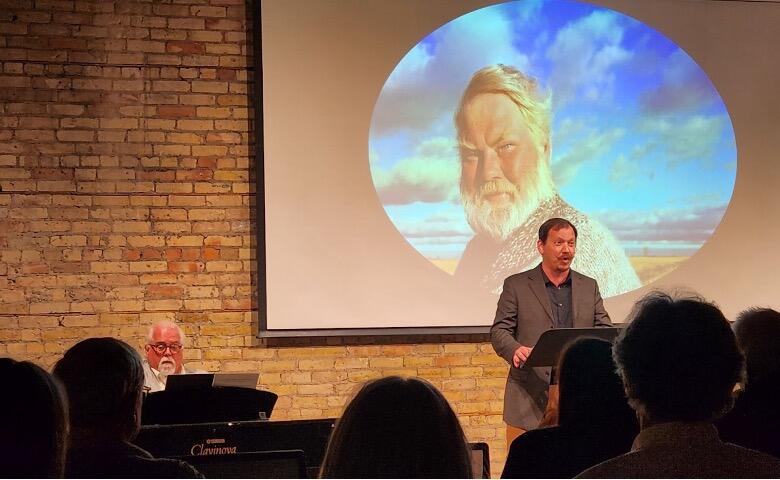
As the duo harmonizes, their bodies move in tandem as if music alone isn’t enough—they must embody it completely. Dr. Daniel Rieppel’s head bobs with each strike of the keys, his eyebrows furrowed. With each progressive octave Ryan reaches, he stands nearly tiptoed, his spine straightening as they build to a final crescendo.
Though the looming life of the poet has since passed, the metamorphosis of his poetry continues—from pen, to piano, to Playing Haydn. In his metamorphosis, it seems that he did not have to cheat death; he merely set an empty chair alongside a burst of lilacs, greeted death as a friend, and invited him to listen a little longer. In a room full of people that still feel the poet’s impact nearly a decade later, it appears that death was persuaded, after all.
In these musings on melody and the staying power of transformative stories, Milkweed, too, has felt the clutching tension of an abrasive political climate as it undergoes its own metamorphosis. As transformation so often asks, there are stages when even change itself embarks into the amorphous unknown. The answer in overcoming these hurtles, for Milkweed, has always rested in poetry and prose—and their inherent power to braid us together.
For more news on our upcoming Milkweed Presents schedule into the spring season, check out our full list here. For updates on our newest releases and special offers, sign up for our newsletter here.
